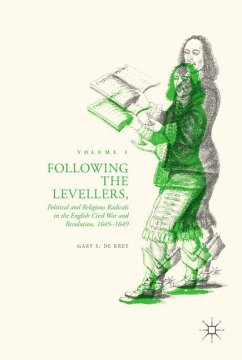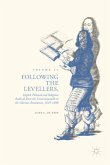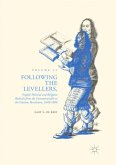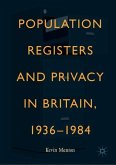This book reinterprets the Leveller authorships of John Lilburne, Richard Overton and William Walwyn, and foregrounds the role of ordinary people in petitioning and protest during an era of civil war and revolution. The Levellers sought to restructure the state in 1647-49 around popular consent and liberty for conscience, especially in their Agreement of the People. Their following was not a 'movement' but largely a political response of the sects that had emerged in London's rapidly growing peripheral neighbourhoods and in other localities in the 1640s. This study argues that the Levellers did not emerge as a separate political faction before October 1647, that they did not succeed in establishing extensive political organisation, and that the troop revolt of spring 1649 was not really a Leveller phenomenon. Addressing the contested interpretations of the Levellers throughout, this book also introduces Leveller history to non-specialist readers.
"De Krey puts forward arguments which will be of interest to the Levellers' most devoted scholars. ... The detail and scope of Following the Levellers is extraordinary. It is as much a major study of 17th-century radical political and religious culture and identity as it is a re-evaluation of the Levellers per se. ... The [volume] is thoughtfully structured and the straightforwardness of the prose is effective." (Edward Legon, Parliamentary History, Vol. 38 (3), 2019)








